The 69th Legislative Assembly has taken action to combat human trafficking in North Dakota through an educational approach. It has approved funding through the Office of the Attorney General to support organizations that provide education for human trafficking prevention.
This competitive grant program mandates human trafficking and exploitation prevention and awareness education for students in public and tribal schools. This education initiative aims to raise awareness among young people and equip them with the knowledge to recognize and respond to potential exploitation.
__________________________________________________________________________________________________________________________________
Now Accepting Applications
- Application Deadline: Friday, August 22, 2025, by 11:59 PM (Central Time)
- Apply Here: Application
- Submit to: agogrants@nd.gov
__________________________________________________________________________________________________________________________________
Eligibility Requirements
Who Can Apply:
- Grant funds must be disbursed through a political subdivision, defined as a unit of local government established by statute or the North Dakota Constitution (e.g., county, township, city, park district, or school district).
Partnership Requirement:
- Funds must be used by either the applicant or a nonprofit organization specializing in outreach and education on human trafficking and exploitation.
- Grant funds cannot be awarded directly to non-governmental entities.
- A Memorandum of Understanding (MOU) between the applicant and qualifying nonprofit organization(s) who will use the funds cooperating agencies must be submitted with the application.
__________________________________________________________________________________________________________________________________
Authorized Requirements
Education developed and provided with the grant funds must be developmentally appropriate and culturally sensitive and use best practices. In addition, it must be provided annually.
__________________________________________________________________________________________________________________________________
Authorized Education
Education developed and provided with the grant funds must be developmentally appropriate and culturally sensitive and use best practices. In addition, it must be provided annually.
Education may include:
- Definitions and the nature of human trafficking and exploitation
- State laws regarding human trafficking and exploitation
- Facts and statistics regarding human trafficking and exploitation in the state and across the United States
- The victim profiling tactics of human traffickers
- The role of online computer activity and pornography
- Methods to identify a potential victim and actions to take following identification of a victim
- Information regarding:
- Force, fraud, and coercion
- Grooming
- The complexities of abuse, indoctrination, and manipulation
- The traits of a human trafficking victim
- The difference between human trafficking and prostitution
- How human trafficking and exploitation demand is created, and which industries influence human trafficking and exploitation
- Actionable steps to take against human trafficking and exploitation, including reporting information to the proper authorities
__________________________________________________________________________________________________________________________________
Prohibited Uses
Grant funds cannot be used for:
- Supplanting existing state or local funding
- Lobbying activities
- Research or research-related projects
- Fundraising efforts
- Construction or remodeling projects
- Out-of-state direct services or training (excluding referrals)
- Other uses outside of authorized uses in this notice
Additional Restrictions:
- No sub-grants to other agencies
- No food purchases
__________________________________________________________________________________________________________________________________
Application & Award Timeline
- July 2025: Notice of Funding Availability released
- August 22, 2025: Application deadline
- September 2025: Reviewed by the Drug & Violent Crime Policy Board
- October 2025: Reviewed by the Human Trafficking Commission
- November 2025: Award notifications issued (retroactive to July 1, 2025)
- June 30, 2027: Grant period concludes
__________________________________________________________________________________________________________________________________
Grant Period
- Start Date: July 1, 2025
- End Date: June 30, 2027
Continued funding beyond this period is not guaranteed. Applicants should plan for sustainability through local or alternative funding sources.
__________________________________________________________________________________________________________________________________
Reporting Requirements
This is a reimbursement-based grant. All submitted expenses must include full and detailed documentation, including:
- Invoices
- Timesheets and payroll records
- Travel itineraries
- Training agendas
Required Reports:
- Quarterly SFR (Summary Financial Report)
- Payment request system
- Semi-Annual Progress Reports
- Must include documentation supporting activities and expenses
- Training materials
- Reimbursement may be withheld for incomplete or late reports
- Must include documentation supporting activities and expenses
Additional Requirements:
- Site visits or desk reviews may be conducted during the funding cycle.
__________________________________________________________________________________________________________________________________
Legislative Reporting and Oversight
In accordance with House Bill No. 1003 (69th Legislative Assembly), the Office of the Attorney General is required to report to the Appropriations Committees of the Legislative Assembly on the use of funds and outcomes of programs supported by the Human Trafficking Education Grant Program. Additionally, lawmakers or state agencies can review whether schools have adopted the policies on trafficking prevention required by Senate Bill No. 2330 (69th Legislative Assembly). Information that must be reported by grantees to the Office of the Attorney General will include statistics and other information related to the following:
- Monitoring Implementation
Reports may be collected to show which schools are providing the required education and how often it’s being taught. - Tracking Parent Involvement
The law offers optional workshops or materials for parents. Oversight could include looking at how many parents participate and how useful the resources are. - Measuring Results
Legislators might request updates or studies to see if the education is helping students better understand and recognize human trafficking. - Reviewing Partnerships
Since schools can work with nonprofit organizations to provide the training, oversight could include checking that these partnerships are effective and appropriate. - Future Reporting Needs
While the law doesn’t currently require formal reports to the legislature, lawmakers may decide to request annual updates to track progress and make improvements.
The Attorney General will also report to Legislative Management during the 2027–2029 session on the overall status and results of the grant program.
To support these statutory reporting obligations, all grantees must ensure timely, complete, and accurate data submission in their progress reports. This data will inform the Attorney General’s interim and biennial reports to the legislature.
__________________________________________________________________________________________________________________________________
Need Assistance?
For questions about the application process, contact Grants Management at 701-328-2210.



